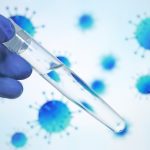Common Water Contaminants and How Water Treatment Services Can Help

1. Bacteria and Viruses
Bacteria and viruses are common contaminants found in water sources, especially those that are untreated or from shallow wells. These microorganisms can cause waterborne illnesses such as diarrhea, typhoid fever, and cholera. Water treatment services utilize disinfection methods such as chlorination or ultraviolet (UV) light to kill or inactivate these harmful microorganisms. These methods are effective in eliminating bacteria and viruses, making the water safe for consumption.
2. Chemicals and Heavy Metals
Water can also contain various chemicals and heavy metals that may pose health risks when consumed. These contaminants can come from industrial activities, agricultural runoff, or corroded pipes. Examples of common chemicals and heavy metals found in water include lead, mercury, arsenic, pesticides, and pharmaceuticals. Water treatment services employ processes such as activated carbon filtration, reverse osmosis, or ion exchange to remove these contaminants from the water. These methods are effective in reducing or eliminating chemicals and heavy metals to safe levels.
3. Sediments and Particles
Sediments and particles in water can give it a cloudy or murky appearance, affecting its taste and quality. These particles can come from sand, silt, or rust in the water supply. Water treatment services often utilize filtration methods such as sediment filters or multimedia filters to trap and remove these particles. These filters help improve the clarity and aesthetics of the water by capturing sediment and particles, resulting in cleaner and more visually appealing water.
4. Chlorine and Disinfection Byproducts
Chlorine is commonly used as a disinfectant in the public water supply to kill harmful bacteria and viruses. However, the presence of residual chlorine in the water can have adverse effects on taste and odor. Additionally, the reaction between chlorine and organic matter in the water can lead to the formation of disinfection byproducts (DBPs), such as trihalomethanes (THMs). Water treatment services employ processes like activated carbon filtration or additional chemical treatment to remove chlorine and DBPs, resulting in improved taste and odor of the water.
5. Nitrates and Nitrites
Nitrates and nitrites are common contaminants found in water, particularly in agricultural areas where fertilizers are used. High levels of nitrates and nitrites in water can pose significant health risks, especially for infants and pregnant women. Water treatment services utilize processes such as ion exchange or reverse osmosis to remove nitrates and nitrites from the water, ensuring that it is safe for consumption, particularly for vulnerable populations.
6. pH Imbalance
The pH level of water can also have an impact on its quality and taste. Water with a low pH (acidic) can be corrosive and may cause damage to plumbing fixtures and pipes. On the other hand, water with a high pH (alkaline) can have a bitter taste and leave mineral deposits. Water treatment services can adjust the pH of water through processes like neutralization or the use of acid or alkaline substances, ensuring that it is within the desired range for optimal consumption.
Summary
Water can contain various contaminants that can pose risks to our health and affect the quality of the water we consume. Bacteria, viruses, chemicals, heavy metals, sediments, chlorine, nitrates, and pH imbalance are among the common contaminants found in water sources. Water treatment services play a crucial role in addressing these contaminants by employing various treatment processes such as disinfection, filtration, ion exchange, and pH adjustment. Through these methods, water treatment services help ensure that the water we drink is clean, safe, and free from harmful substances. By utilizing these services, we can have peace of mind knowing that the water we consume promotes our health and well-being.
Got Questions? Let Us Help!
Welcome to Royal Water Works, Inc.! We are a family-owned business that has been serving the heart of Pisgah Forest, NC for over twenty years. As an environmental service company, Royal Water Works, Inc. partners with contract operations for water testing, water filtration design, wastewater operations, iron removal, PH adjusting, ultraviolet disinfection, and more. We provide a high degree of customer service and quality work to ensure we get the job done. Call us today; we can’t wait to hear from you!
Categorised in: Water Treatment Service
